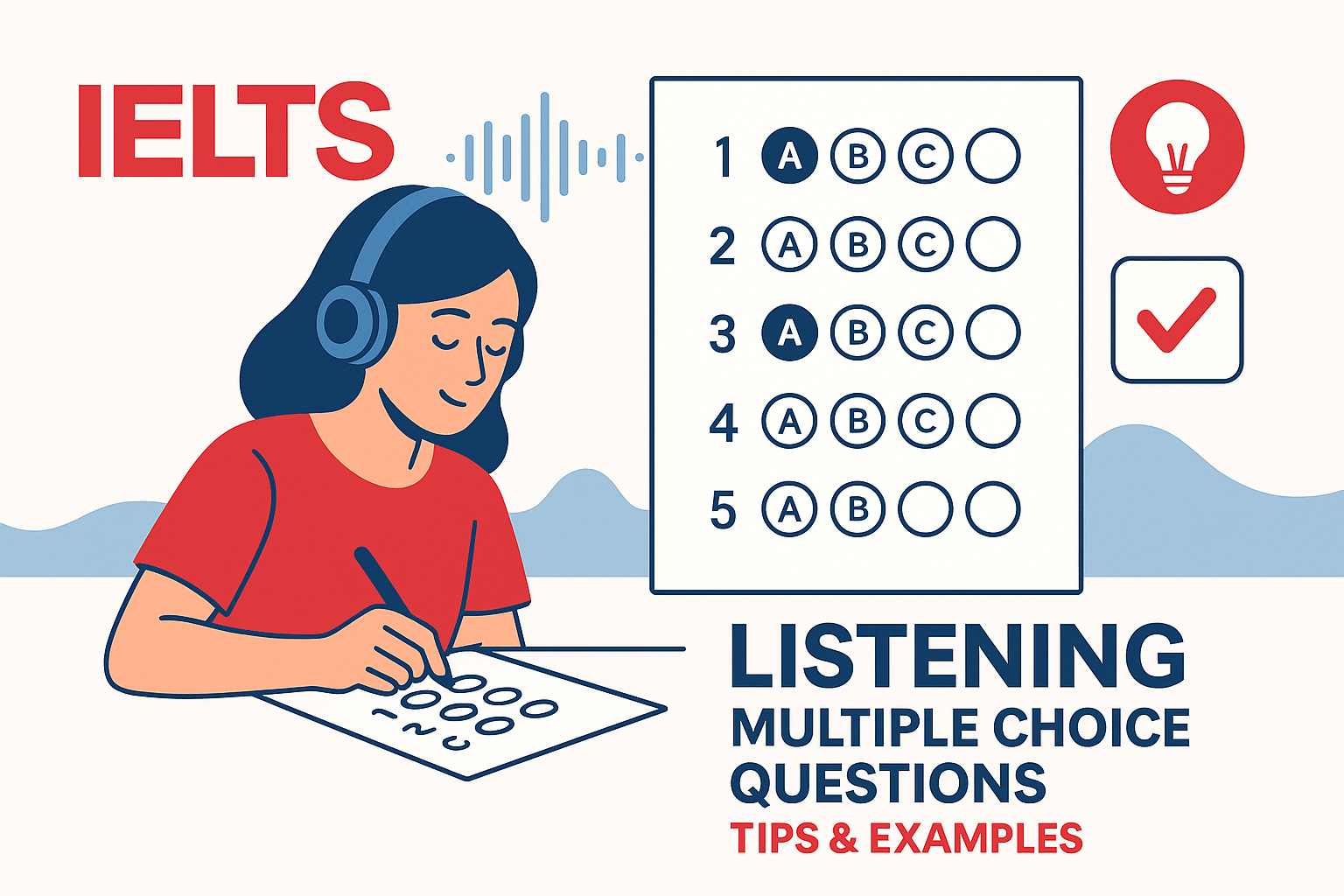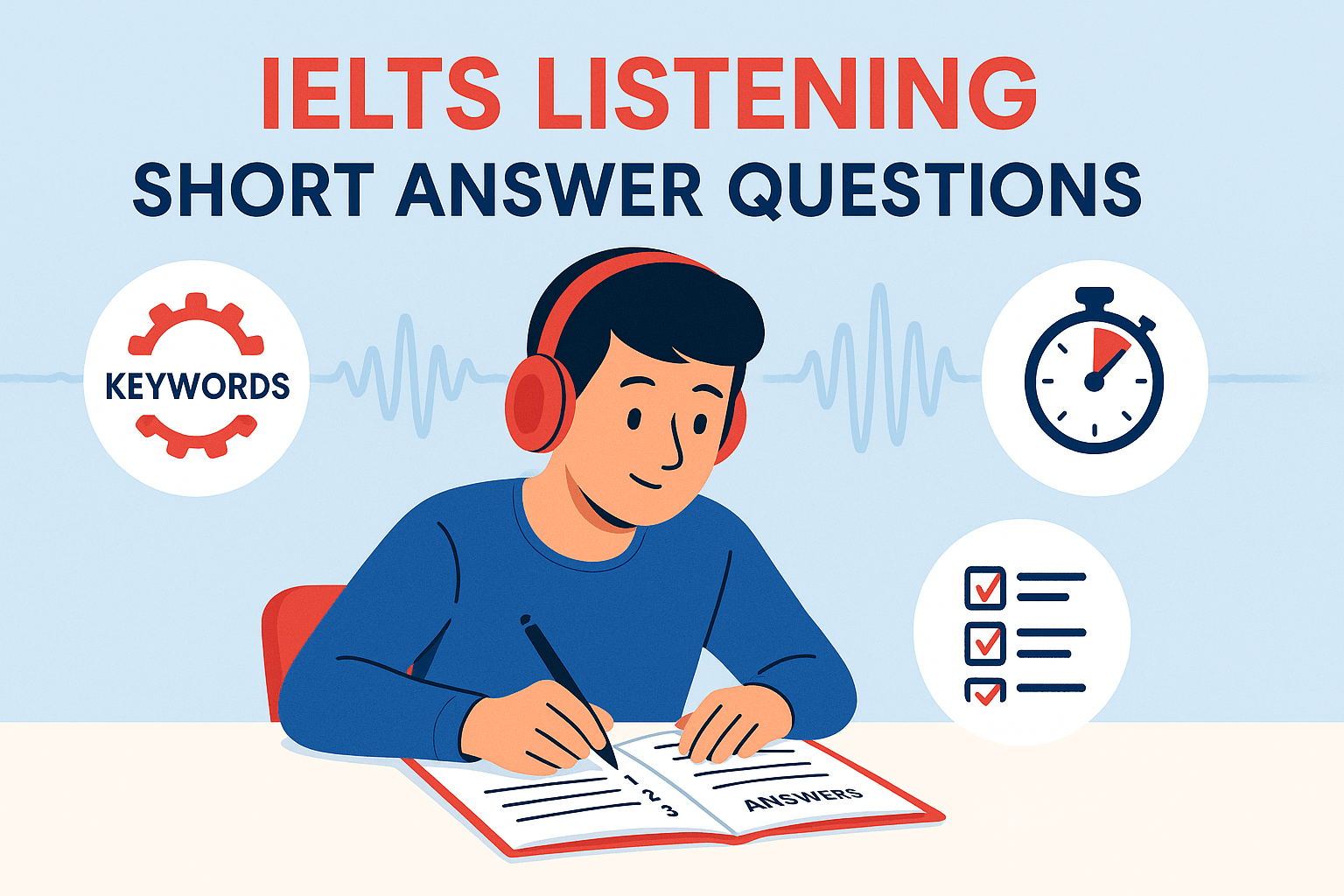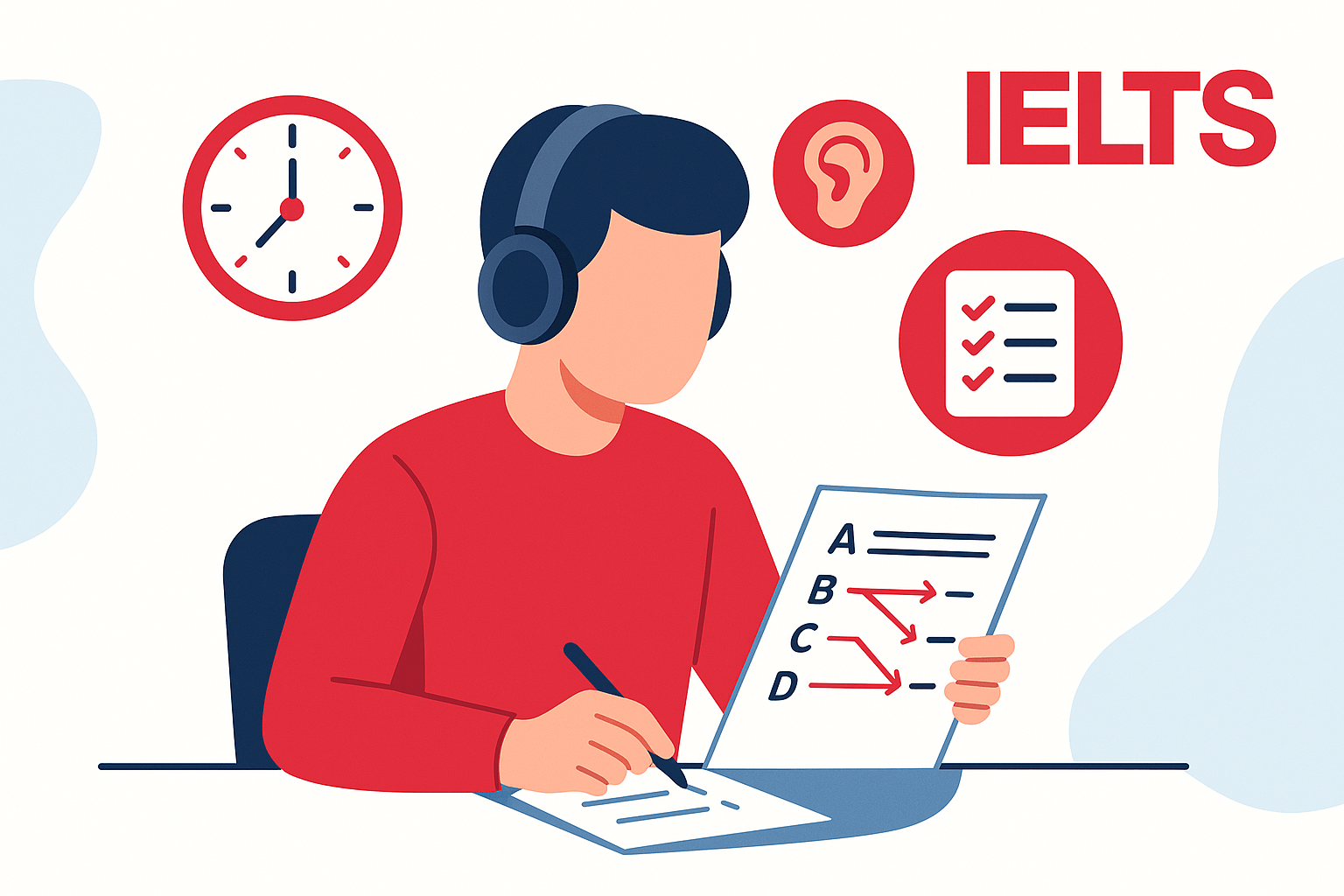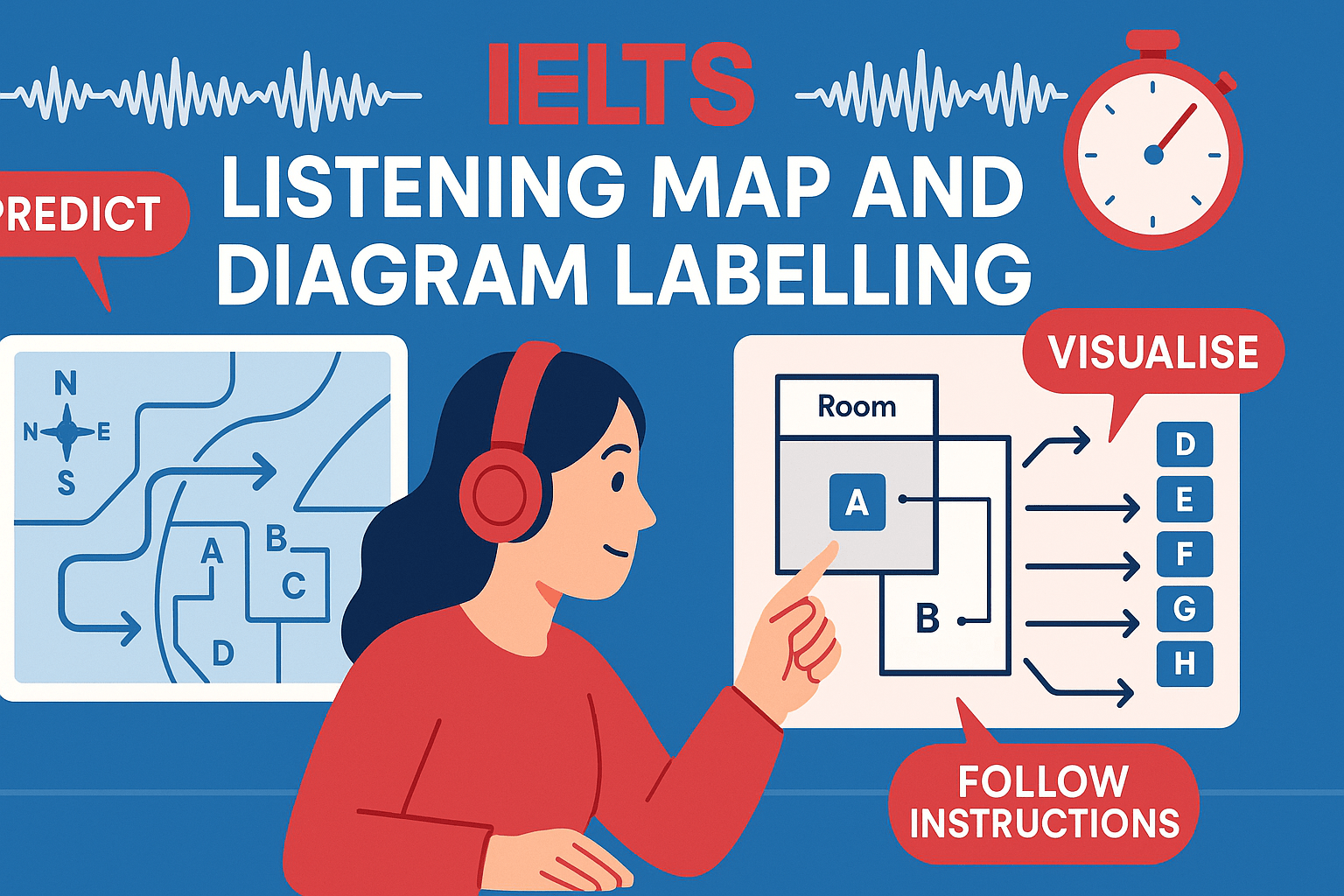When preparing for the IELTS Listening test, one of the most common challenges my students face is IELTS Listening Multiple Choice Questions. Over the years, I’ve seen even advanced learners lose marks here — not because they don’t understand the recording, but because they misinterpret the question or get distracted by extra information. In this guide, I’ll share the exact strategies I teach my learners worldwide, based on real classroom experiences, to help you answer these questions confidently and accurately.
Understanding the IELTS Listening Multiple Choice Format
In the IELTS Listening test, multiple choice questions can appear in single-answer or multiple-answer formats. You’ll listen to a recording and choose the correct option(s) from three or more given choices. The tricky part? The recording often contains distractors — words and phrases designed to make you doubt your answer.
I’ve noticed that many students initially think these questions are easier because “the answer is already there.” However, the reality is that the answer is often hidden between paraphrased information and misleading details. That’s why understanding the format is just as important as practising.
For a full overview of all IELTS Listening question types, check out my IELTS Listening Question Types Guide.
Why Students Struggle with Multiple Choice Questions
From my teaching experience, the most common issues are:
- Not reading the question carefully before listening.
- Listening for keywords only, which leads to confusion when synonyms are used.
- Falling for the first possible answer instead of waiting for the full context.
- Losing track during long recordings with multiple details.
I once had a student, Maria, who always chose the first answer she heard. After analysing her mistakes, we discovered that nearly 60% of the time, the speaker changed their answer later in the recording — a classic distractor technique.
My Proven Strategies for IELTS Listening Multiple Choice Questions
Here are the exact strategies I teach to help my students succeed:
1. Read and Predict Before Listening
Spend the short preparation time reading the question and options carefully. Predict what type of information you’re listening for — is it a date, a reason, a name, or an opinion? This mental preparation makes it easier to spot the right answer.
2. Highlight Keywords and Synonyms
Underline keywords in the question and think of possible synonyms. For example, if the option says “increased”, the speaker might say “went up” or “rose sharply”. IELTS is well-known for paraphrasing, as you’ll see in the official IELTS website.
3. Avoid Getting Trapped by Distractors
The speaker may mention all the options, but only one (or two) will be correct. If you hear an option early, keep listening — they might contradict it later. This is especially common in conversations where one speaker changes their mind.
4. Focus on Context, Not Just Words
Sometimes students hear a keyword and immediately choose that answer. Instead, listen to how it’s mentioned. Is it positive, negative, or neutral? Context can change the meaning completely.
5. Keep Your Eyes on the Next Question
If you miss an answer, don’t panic. Quickly move to the next question to stay in sync with the recording. Losing focus on one question can cause you to miss several.
For more high-level listening strategies, see my IELTS Listening for Band 7–9 Guide.
Practice is Non-Negotiable
Mastering multiple choice questions isn’t just about knowing the strategies — you need regular, focused practice. I recommend taking timed practice tests to simulate real exam pressure. You can try my free IELTS Listening Practice Tests to track your improvement.
If you want step-by-step guidance, personalised feedback, and more advanced exercises, I also teach premium courses on IELTS preparation.
Common Mistakes to Avoid
Over the years, I’ve seen students make avoidable errors such as:
- Not transferring answers correctly to the answer sheet.
- Misunderstanding plurals or singulars in the recording.
- Ignoring the instruction to choose “two answers” instead of one.
- Changing answers last minute without clear reason.
These mistakes are preventable with consistent training and test awareness, as reinforced on British Council IELTS and IDP IELTS platforms.
Final Thoughts
IELTS Listening Multiple Choice Questions can be challenging, but with the right mindset, strategies, and practice, you can turn them into one of your strengths. I’ve seen students go from scoring half marks in this section to achieving full marks in just a few weeks by applying these tips consistently.
Frequently Asked Questions
1. How many multiple choice questions are there in the IELTS Listening test?
It varies, but usually between 3–6 questions in different sections.
2. Are multiple choice questions harder than other question types?
They can be trickier because of distractors and paraphrasing, but with practice, they become manageable.
3. Should I guess if I’m unsure about an answer?
Yes, there’s no penalty for wrong answers, so always choose something.
4. Can I hear the answer more than once?
No, recordings are played only once, so you need to stay focused.
5. What’s the best way to improve at multiple choice questions?
Learn the format, practise regularly, and analyse your mistakes to avoid repeating them.




